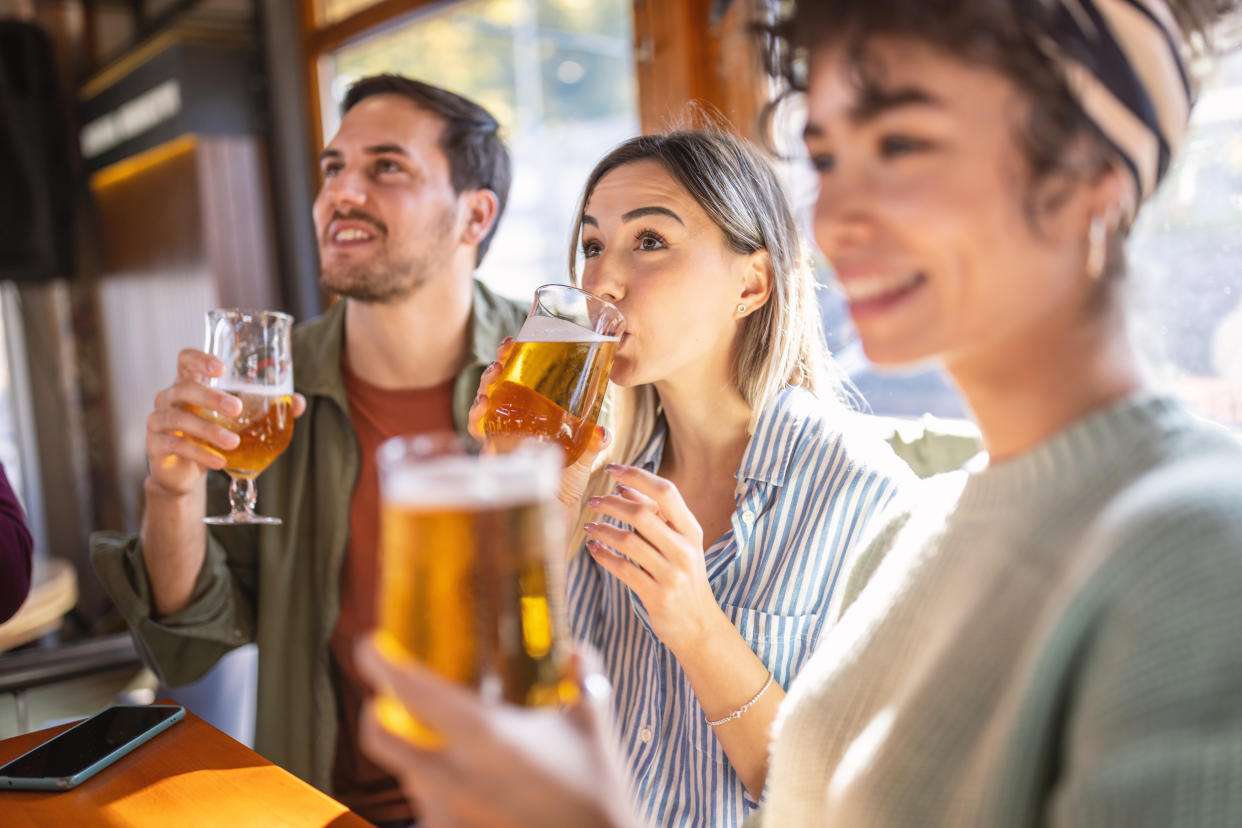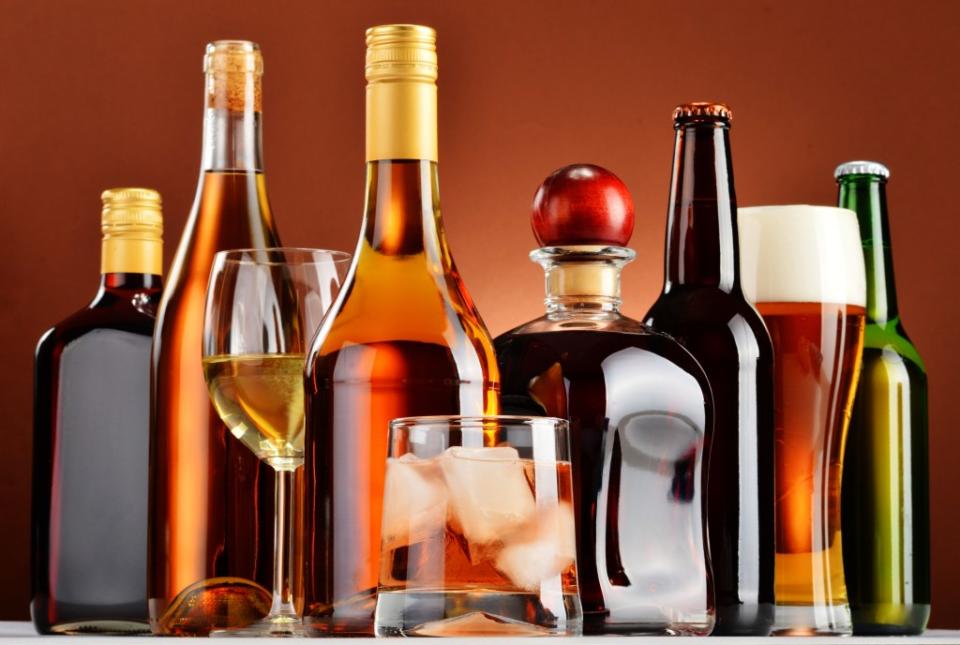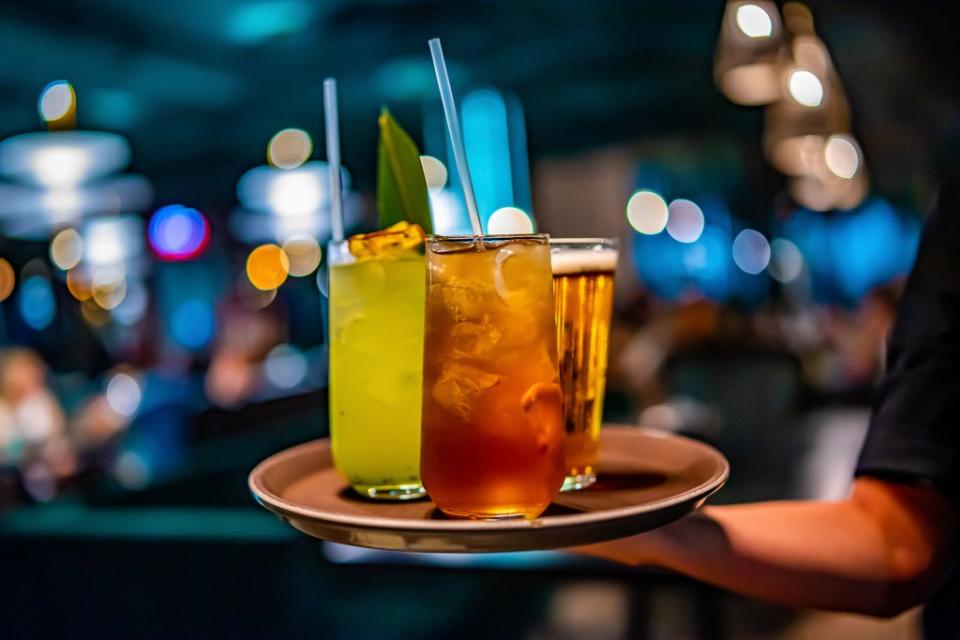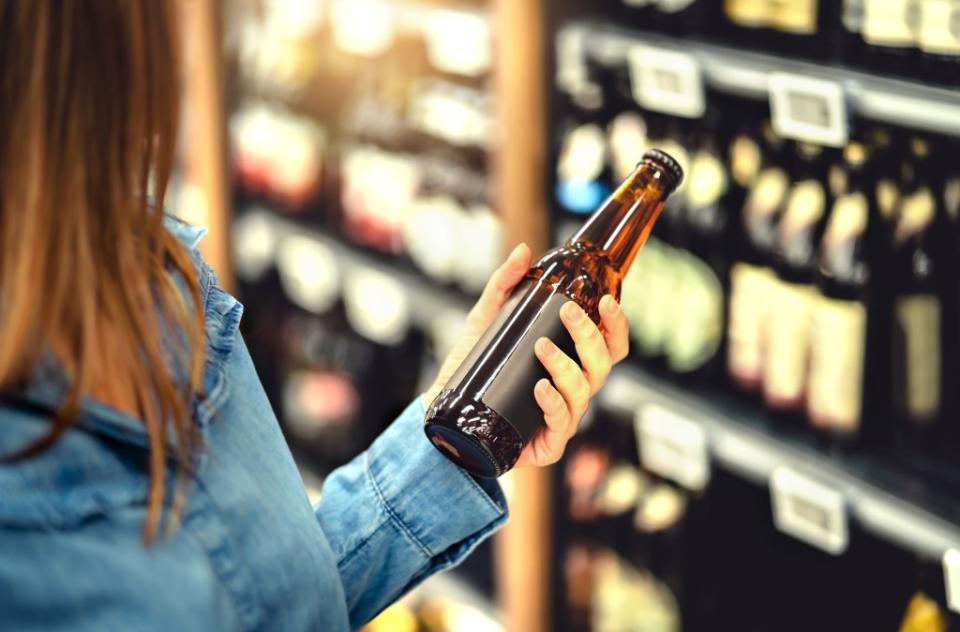Beer before liquor or liquor before beer? Scientists finally clear up the myth

It’s an old wino’s tale.
We’ve got bad news for those who believe that drinking “liquor before beer” mitigates hangovers. German scientists have debunked this popular college student hypothesis, proving that the hooch headache hits the same no matter which order one imbibes their beverages.
“Our findings dispel the traditional myths,” researchers wrote in the sobering study, which was published in 2019 in the American Journal Of Clinical Nutrition.
The research specifically addressed several popular sayings: “Beer before liquor, never been sicker”; “Grape or grain, but never the twain [never beer and wine on the same night]; Beer before wine and you’ll feel fine.”
Since time immemorial, college revelers and other boozers have touted these mantras as a way to binge drink sans suffering a hangover (theoretically allowing tipplers to have their gin and drink it too).

Unfortunately, despite these maxims’ dubious nature, researchers haven’t been able to give them the old college try. This was, in part, due to lack of funding and time, according to Dr. Kai O. Hensel, a researcher at Helios University Hospital Wuppertal in Germany, who helmed the study.
Thankfully, at long last, the German team finally managed to “investigate the influence of the combination and order of beer and wine consumption on hangover intensity.”
To see if these alcoholic aphorisms held water, the team recruited 90 students aged 19 and 40 from a German university and divided them into three groups, The New York Times reported.
On day one, the first group drank beer until the blood alcohol level clocked in at 0.05 percent. They then switched things up and imbibed wine until their BAC reached 0.11%.
The second group conducted the same experiment, but in reverse order, while a third “control” group drank only either beer or wine.
After each drinking session, participants were asked about their well-being and perceived level of intoxication. Then, the next morning, the tipplers rated their hangovers’ intensity on a scale from 0-7 according to how thirsty, nauseous, tired, and dizzy they felt.

A week later, the groups reversed roles: The participants who initially drank beer first started with wine this time while the wine group began with beer.
Meanwhile, the control group that exclusively drank beer switched to wine and vice versa.
After tallying their scores, researchers found that drinking order didn’t have a major effect on hangover severity, which was impacted more by how their bodies processed alcohol.
“A single drink of alcohol is enough to trigger a hangover for some people, while others may drink heavily and escape the hangover entirely,” said Sandra Arévalo, a spokesperson for the Academy of Nutrition and Dietetics who was not affiliated with the study.

In general, inebriation experts agree that hangover intensity is determined more by the volume of sauce one drinks and the speed at which it’s consumed.
“What really matters is the amount of alcohol that you consume,” said Arévalo. “If we drink too much or too fast, we will feel it because we are not giving our liver enough time to clear the alcohol in our blood.”
Other potential hangover heighteners include not drinking enough water while binge-drinking and imbibing on an empty stomach.
That being said, certain alcohols do increase the chances of suffering a morning-after ill.
Darker spirits such as whiskey generally cause harder hangovers than lighter-colored liquors like vodka because the former harbor higher levels of congeners.
These compounds occur naturally during the distillation and fermentation process and affect the drinks’ colors, flavors and aromas.

